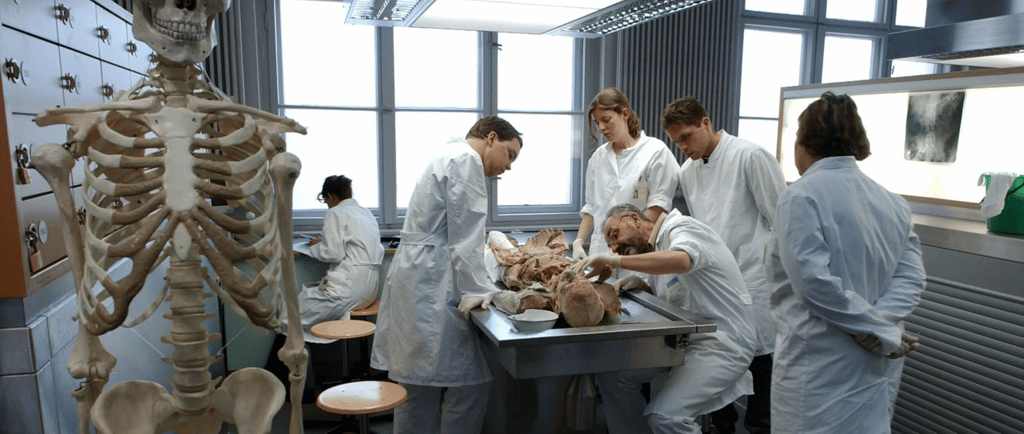The Dark World of Body Brokers: An Unregulated Industry
Discover the hidden truths about the body broker industry, where human bodies are bought and sold without regulation, raising ethical and legal concerns worldwide.
9/1/20244 min read


Body Brokers: The Dark Side of the Human Body Trade
The body broker industry, also known as non-transplant tissue banks, involves the buying and selling of cadavers or human body parts. In the United States, this industry operates like the Wild West—unregulated and chaotic. For decades, professionals from various fields have been calling on the federal government to intervene. Although a bill to regulate the industry was introduced in June 2023, no further action has been taken. While the U.S. leads in this controversial trade, it is not the only country grappling with a body broker problem. So, how does this industry work, and why has it been allowed to continue unchecked?
What Are Body Brokers?
To understand body brokering, we first need to know what it is and isn't. In countries like Australia, it is illegal to buy or sell body parts under any circumstances. However, in the U.S. and other countries, there are no laws explicitly governing the buying or selling of body parts. The lack of regulation creates a high-demand market with significant financial incentives for body brokers. But who buys these bodies, and for what purpose?
Who Is Buying, and Why?
Contrary to popular belief, body brokers are not selling to medical schools for student cadaver dissection. In most countries, enough people donate their bodies to science, which is tightly regulated. Similarly, organ donation is not part of this market due to strict regulations, though there is a need for more donors. Instead, these bodies are often sold to companies and organizations that might surprise you.
For example, Johnson & Johnson, a major pharmaceutical and medical tech company, used torsos purchased from body brokers to demonstrate new products to potential investors. They claim ignorance of the non-consensual nature of these donations. The U.S. military has also bought bodies from brokers for testing weapons and safety gear, often without consent from the families of the deceased.
Musculoskeletal transplant companies, often registered as non-profits yet earning hundreds of millions of dollars, craft implants from human tissue. Some of these companies have been found to use non-consensual donations, including the world’s largest tissue company, MTF.
How Do Body Brokers Operate?
Body brokers rely on a steady supply of "donations." One way they acquire bodies is by falsely claiming to be affiliated with university programs that do not advertise their body donation services. They tell families to leave the body with them, promising to deliver it to a university, only to sell it instead.
Brokers also form alliances with struggling funeral homes, hospitals, and morgue staff, offering financial incentives to refer or hand over bodies. They often target the elderly, impaired, or poor with promises of free cremation, only to disappear with the body.
This is not just a U.S. problem. Countries like Mexico, Slovakia, Estonia, Hungary, Ukraine, Belarus, Russia, China, India, Thailand, and Vietnam also face issues with body brokers. Often, bodies are shipped to companies in the U.S., having been sold multiple times.
Why Should We Care?
Some might think, "I wouldn’t care if it was my body." However, the issue is not about the deceased; it’s about the living. Families are often manipulated or threatened into handing over bodies. Many are targeted because they cannot afford proper funerals.
Additionally, bodies in this trade are rarely tested for diseases, posing a significant health risk. There have been instances where bodies with HIV or hepatitis were sold, leading to potentially contaminated transplants. Moreover, bodies from crimes that have not been reported or investigated can end up in this trade, further complicating justice for the deceased.
Notable Body Broker Scandals
Several scandals have exposed the dark side of this industry:
Michael Mastromarino: The president of Biomedical Tissue Services, Mastromarino, and his employees were arrested for illegally harvesting human bones, organs, and tissues from individuals awaiting cremation. They forged consent forms and sold these parts without family consent. Mastromarino is currently serving 58 years in a maximum-security prison but remains unremorseful.
Arthur Rathburn: Rathburn earned $13 million from 1997 to 2013 by selling human remains that had been donated to science. Convicted of defrauding customers and violating hazardous shipping laws, he was found to have sold body parts infected with HIV or hepatitis over 120 times. Despite numerous warnings and investigations, Rathburn continued his activities until his arrest in 2013.
What Does This Industry Say About Society?
Experts agree that the government’s failure to regulate body brokering is largely due to money and leverage. This situation highlights other societal issues, such as the underpayment of staff in fields like healthcare and funeral services, who may resort to unethical practices to make ends meet.
Additionally, this industry exposes the vulnerability of institutions that we often trust. Companies and departments, including the military and pharmaceutical firms, have been implicated in unethical practices, challenging our perception of their integrity.
Watch our full video to explore these complexities further
A Call for Ethical Action
While there are legitimate body brokers who try to operate ethically, the lack of regulation means bad players often dominate the industry. To address these issues, we need more organ donors and tighter regulations on body donations and sales.
If you’ve heard of any outrageous body broker scandals, share them in the comments below. Let's continue to talk about death and advocate for ethical practices in all aspects of life and death.
Book an online consultation below. Remember, it's never too early to talk about death.

